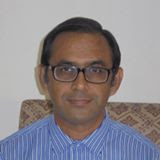Reengineering the academic processes in old Universities would invite a lot of resistance. The old regulations have always inhibited schools, departments and individuals from looking beyond their parent disciplines. Having created water tight disciplinary silos, it is difficult for the old Universities to adapt to the new mindset of promoting multi-disciplinary interactions.
Unlike the old Universities, however, the new Universities are like clean slates where the idea of a University (as espoused by Prof Yash Pal) can be genetically coded right from the start. Thus instead of making them conform to old regulations, a new innovative regulatory framework should be quickly put in place for promoting free and unfettered academic thinking.
Unlike the old Universities, however, the new Universities are like clean slates where the idea of a University (as espoused by Prof Yash Pal) can be genetically coded right from the start. Thus instead of making them conform to old regulations, a new innovative regulatory framework should be quickly put in place for promoting free and unfettered academic thinking.
Each individual academic entity in such a University should have the autonomy to look beyond disciplinary boundaries in support of the larger University objectives. Resources ou ght to be deployed accordingly. The old regulations never encouraged individuals to be growth engines – their ideas were never appreciated. Click on the figure alongside. People with ideas have either left or have withdrawn into their shells. Such situations should not arise in the future Universities of India.
ght to be deployed accordingly. The old regulations never encouraged individuals to be growth engines – their ideas were never appreciated. Click on the figure alongside. People with ideas have either left or have withdrawn into their shells. Such situations should not arise in the future Universities of India.
 ght to be deployed accordingly. The old regulations never encouraged individuals to be growth engines – their ideas were never appreciated. Click on the figure alongside. People with ideas have either left or have withdrawn into their shells. Such situations should not arise in the future Universities of India.
ght to be deployed accordingly. The old regulations never encouraged individuals to be growth engines – their ideas were never appreciated. Click on the figure alongside. People with ideas have either left or have withdrawn into their shells. Such situations should not arise in the future Universities of India. In this connection I would like to highlight the IFEES-GEDC declaration which is a reflection of the changing times where engineers have to proactively participate in promoting a flat world. While this body is promoting the role of engineers beyond borders, there are similar bodies in other disciplines as well (e.g. doctors without borders).
Here is an excerpt from the Paris Declaration of the Global Engineering Deans Council:
1) To provide a world-wide forum for exchange of information and discussion of experiences, challenges, and best practices in leading an engineering school.
2) To provide a means for engineering deans to partner with one another in curriculum development and innovation, and to collaborate with industry, government, and other stakeholders.
3) To build a network that would support engineering deans to play a leadership role in developing regional and national policies to advance economies.
4) To participate in the development and maintenance of a global system of quality standards for engineering education.
[The GEDC’s Paris Declaration]
1) To provide a world-wide forum for exchange of information and discussion of experiences, challenges, and best practices in leading an engineering school.
2) To provide a means for engineering deans to partner with one another in curriculum development and innovation, and to collaborate with industry, government, and other stakeholders.
3) To build a network that would support engineering deans to play a leadership role in developing regional and national policies to advance economies.
4) To participate in the development and maintenance of a global system of quality standards for engineering education.
[The GEDC’s Paris Declaration]
Related blog posts:
- Prof. Yashpal on Higher Education
- Godspeed to SPEED (on IFEES @KIIT University, Bhubaneswar)


No comments:
Post a Comment